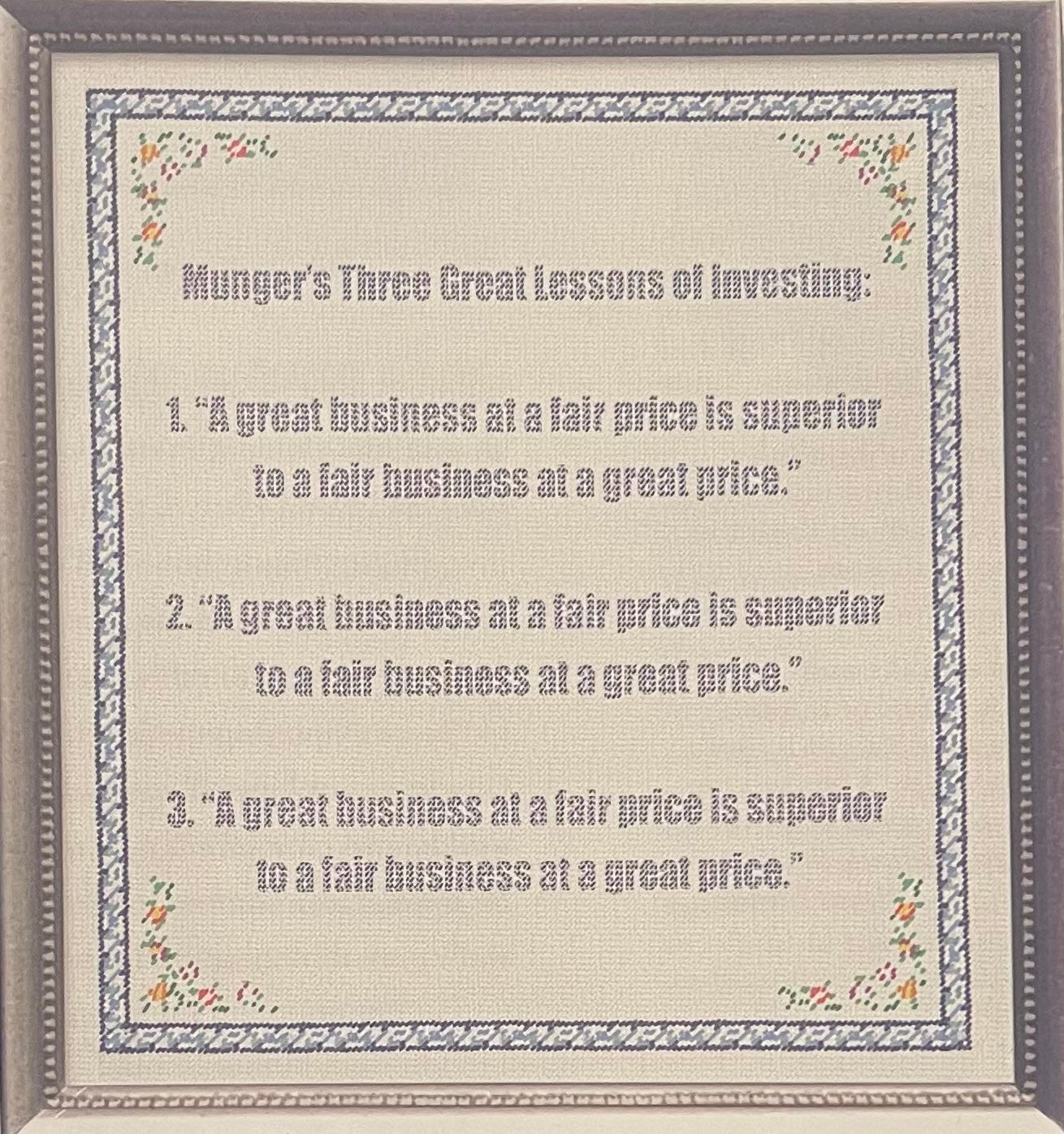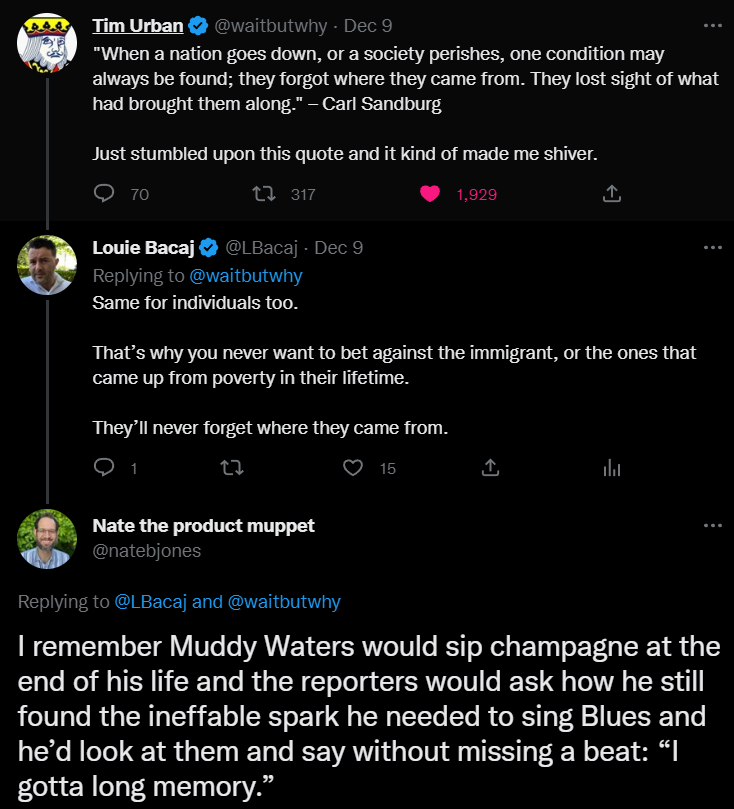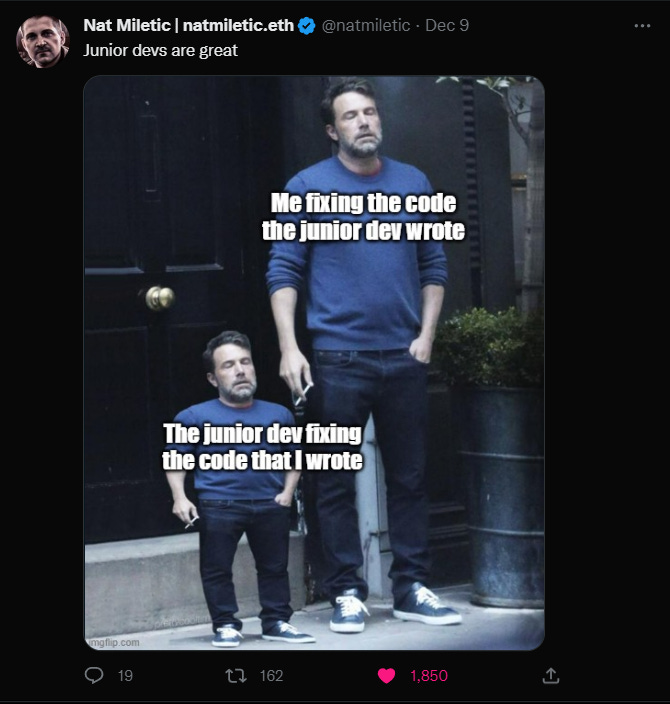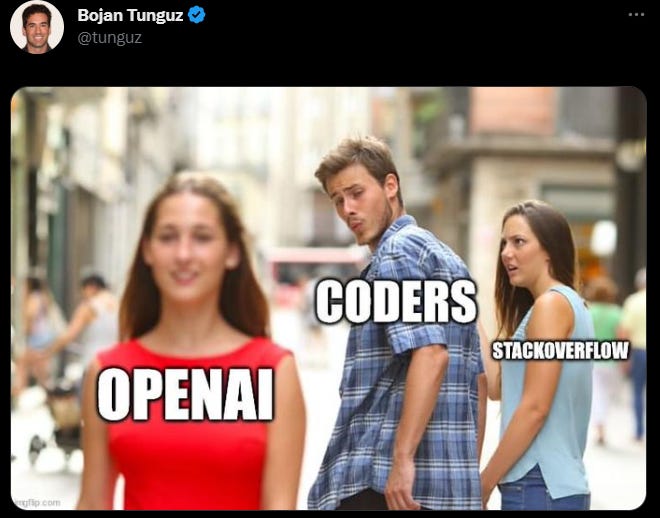M&Ms: Changing Mind
Being objective and changing my mind on the 84th edition.
"It's kind of fun to sit there and outthink people who are way smarter than you are because you've trained yourself to be more objective and more multidisciplinary. Furthermore, there is a lot of money in it, as I can testify from my own personal experience."—Charlie Munger.
As Charlie says, there are benefits to thinking objectively, and that sometimes means changing your mind when others won't.
Even Warren Buffet credits Charlie Munger with changing his mind a few times. In “Poor Charlie's Almanack” Warren says:
"Charlie shoved me in the direction of not just buying bargains, as Ben Graham had taught me. This was the real impact Charlie had on me. It took a powerful force to move me on from Graham's limiting views. It was the power of Charlie's mind. He expanded my horizons.”—Warren Buffett
What changed Warren's mind was that Charlie taught him his rule of thumb: "a great business at a fair price is better than a fair business at a great price."
With all this objectivity in mind, I wanted to reflect on a list of at least five things I've changed my mind about this year that may or may not help you:
1. I thought entrepreneurship was about being heads down and building one thing. It's what I set out to do after I quit my job at Walmart, and it's what the conventional wisdom preaches "focus."
But, I am the kind of person who needs to know he will survive in spite of any one thing. And shortly after learning about the small bets approach to entrepreneurship, I quickly saw a better way and changed my mind.
My approach to entrepreneurship may be slower, who knows, but the learnings are certainly not. And a year in, I am still in the game.
This year, I've made $100k from just internet money on my own. That’s $100k just from Small Bets. It pales in comparison to what I used to earn as an employee, but when combined with my realestate income and other earnings, it's enough to survive and go again for another year.
And the best part is I know enough now from the small wins that I might be able to make more next year.
2. I changed my mind about trusting my intuition.
There is too much data and complexity; there is too much noise in our world. Our gut is the best tool we've got to cut through that and stop overthinking.
Making gut calls contrasts my days as an employee, where I made nearly every decision with data. But this year, I learned to build things I was inspired to build and write about things I was inspired to write about.
If my gut said it was a good idea, I listened.
Sarah Blakely credits her gut with leading her to found Spanx. And she says trusting the gut is the most important thing anyone can do.
Earlier this year, when the war in Ukraine started, my gut said the global economy was headed for rough times. I wrote about those things in this newsletter, and I took action. I sold most of my positions in the markets and saved tens of thousands.
I learned this year that my gut gets better and better the more I use it.
3. I flipped on procrastination; contrary to common wisdom, it's quite useful.
I used to try and eliminate all procrastination from my life. I used to get anxious because I saw myself procrastinating and not optimizing every minute of my work.
But this year, I learned that procrastination is a signal.
It's a strong signal that we aren't working on the right thing or the thing we are working on is too ambiguous. It's crazy to ignore this signal and override it all the time.
When I started as an entrepreneur, I thought my procrastination was trying to kill me and my chances of success.
But when I overrode it to finish that feature, or write that piece, it flopped.
Then I realized my procrastination wasn't trying to kill my chances. It was trying to save me. It was trying to save me from wasting time on dead-end things that would never go anywhere.
Now, instead of fighting my procrastination and finishing things anyway, I listen to it and switch to working on things that inspire me instead.
4. Rules of thumb can beat out complex trained models with access to tons of data.
At some point this year, I realized that some of the most important decisions of my life were made using rules of thumb.
All of the realestate I bought, which has been incredibly successful as investments, have come from a single simple rule of thumb.
"Would I live there myself?"
This simple rule of thumb encapsulates tons of things I would need to spreadsheet out, such as:
What kind of shape is the home in? Figuring this out isn’t always easy. If the home is a dump, I wouldn't want to live there.
What type of area is the home in? If the home is in a bad area, I wouldn't want to live there.
What kind of schools does the home fall in? If it didn't have great schools, I wouldn't want to live there and send my kids to them.
How close is it to major metros? If it wasn't within walking distance of the trains and 30 minutes from the city, I wouldn't want to live there.
All those "Ifs" and so many more get captured by a dead simple rule of thumb, "Would I live there myself?" This has led to amazing rentals and some incredible real estate investments.
Think about it; chances are if I wouldn't want to live there, why would other families?
Don't get me wrong, I am sure people find deals in areas they'd never live in, but I don't want their headaches; I want to spend as little time as possible managing my properties.
I have spent the year finding more rules of thumb to simplify my life. And was delighted to find out this year that Charlie Munger uses many of these himself. And he uses none of the reading the charts that many traders do today. I’ve added at least one of Charlie’s rules of thumb to my collection: "a great business at a fair price is better than a fair business at a great price."
5. Inspiration is one of the most powerful forces in the world.
Before I started creating, I thought discipline was everything and inspiration was no big deal. Now I think it's the opposite.
Inspiration is powering the biggest innovations in AI right now.
The most interesting AI innovations we've had in decades such as large-language-models like ChatGPT and stable diffusion, which generate images from prompts. Both of these AI algorithms rely on inspiration to remix content.
We can tell they rely on inspiration and are remixing because, unfortunately, it is still "inspired" to sign the artist's signatures in many of them.
So my advice to you is that if inspiration comes to you, you should drop everything and do what its pushing you to do. It's what I do now. I run to the keyboard and get to work because I've never regretted any outcome from inspiration.
Three Tweets: Don’t forget where you come from, No more visiting websites, Lot’s of innovation in 2022
Never forget your principles and the things that make you, you.
There are very real challenges ahead for many businesses when it comes to AI. No visitors means no business.
I have been using ChatGPT a lot for code problems, and it is awesome to get a personalized answer to a problem. And my brother built an interface for ChatGPT so you can text with it via sms. We have been thinking about all this and talking about it a lot.
I wrote two threads with my thoughts on this; you can read them here and here. But we should expect a very hostile environment toward AI platforms going forward.
There have been a lot of great wins scientifically this year, even though a lot of crazy things have happened too.
Two Memes: Junior Devs, What StackOverflow
Junior or Senior, being a software developer can be a hard life.
It seems like StackOverflow might be the first casualty of the new AI platforms.
As always, thank you for reading.
-Louie
P.S. you can reply to this email; it will get to me, and I will read it even if I cant always reply to all of them.










Thanks for really good thoughts. I think intuition is just sub-conscious analysis. That is, the older and more experience you get the better is your gut feeling as a guide in life. It gets more and more common for me to just trust my intuition. I used to think it was laziness that made me skip overthinking, but I have come to realize that using intuition ex ante often score the best ex-post
Great stuff Louie! I think sites that generate their own data like Stack Overflow and Google will still be okay because LLMs like GPT-3 and Chat GPT-3 are constrained by the knowledge they were trained with (which isn't beyond 2022). My long term prediction is that it's likelier sites like Stack Overflow will want to have its own GPT-3 model fine-tuned on its own data to offer a better user experience.